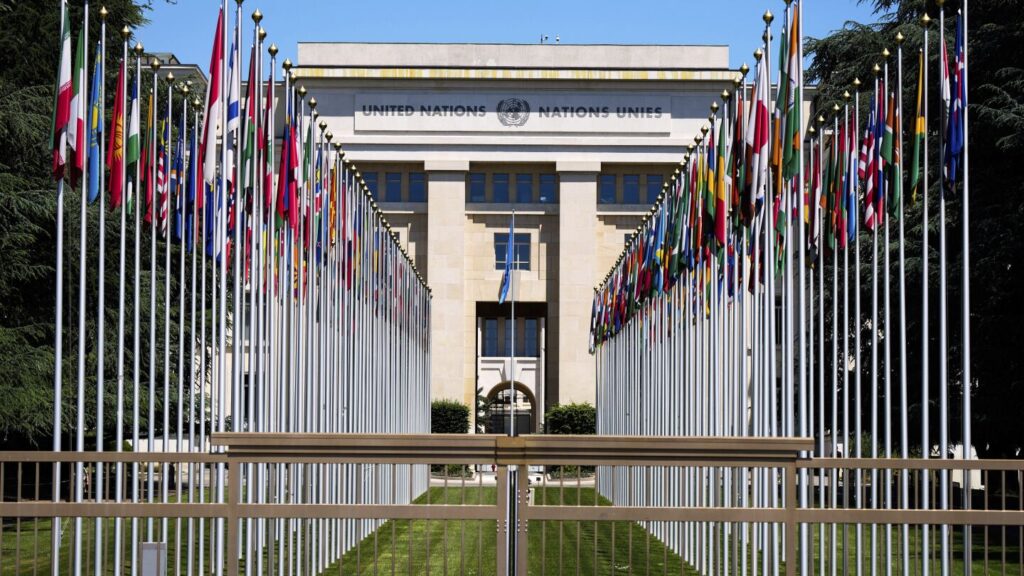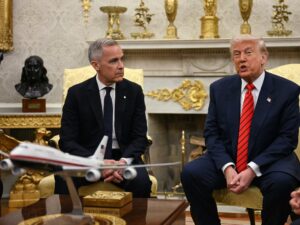
UNITED NATIONS — As the United Nations marks its 80th anniversary this month, the organization finds itself grappling with diminished influence and financial uncertainty. This comes in the wake of significant funding cuts from the United States and other nations, leading to job reductions and a push for long-overdue reforms. The UN’s foundational principle of multilateralism is under threat, as its most powerful body, the Security Council, remains paralyzed in addressing major conflicts in Ukraine and Gaza.
The situation has been further complicated by the recent escalation of tensions involving Israel, Iran, and the United States, with the UN largely relegated to the sidelines. As the institution and its nearly 150,000 employees strive to navigate an increasingly fragmented global landscape, questions loom about its continued relevance and survival.
A Legacy of Optimism
The United Nations was conceived in the aftermath of World War II, with its charter signed on June 26, 1945, in San Francisco. The primary aim was to prevent another global conflict, a goal reiterated by UN Secretary-General Antonio Guterres earlier this year. He noted, “Eight decades later, one can draw a direct line between the creation of the United Nations and the prevention of a third world war.”
Despite the absence of a third world war, numerous conflicts persist in regions such as Gaza, Ukraine, Sudan, eastern Congo, Haiti, and Myanmar. The humanitarian needs in these areas have grown, even as wealthy nations, including the United States, reduce their aid contributions. This backdrop sets a somber tone for the UN’s 80th-anniversary commemoration, which includes an exhibition featuring the original UN Charter at its New York headquarters.
Evolving in a Changing World
Since its inception, the United Nations has expanded from its original 50 member states to 193, reflecting a world transformed by technological advances and geopolitical shifts. The organization has grown beyond its initial focus on peace and security, now encompassing a wide array of issues, from economic development to human rights.
“The United Nations remains the essential, one-of-a-kind meeting ground to advance peace, sustainable development, and human rights,” Guterres told the Security Council earlier this year.
Despite its broad mandate, the UN faces criticism for its perceived ineffectiveness. Kishore Mahbubani, a former Singaporean ambassador to the UN, credits the organization with preventing World War III but acknowledges its current challenges. “While there are still wars, deaths have continued a long-term decline, and the world is still, overall, a much more peaceful place,” he said.
Current Challenges and Criticisms
The UN’s ability to address pressing global issues is hampered by internal divisions and external pressures. The Security Council, in particular, is often deadlocked, with its five permanent members frequently at odds. This gridlock has drawn criticism from figures like John Bolton, a former US ambassador to the UN, who describes the organization as being “in the worst shape it’s been in since it was founded.”
Richard Gowan, UN director of the International Crisis Group, notes that the organization has been navigating a series of crises since the 1990s. He warns that the current geopolitical climate and funding cuts could lead to a “smaller UN in a few years’ time,” as member states prioritize other concerns.
Looking Ahead: Reform and Resilience
In response to these challenges, Guterres has initiated a series of reforms, including the “Pact for the Future,” aimed at uniting the world to tackle 21st-century challenges. However, significant changes will require the approval of a divided membership, and the next Secretary-General, to be elected in 2027, will likely face the task of further downsizing the organization.
“The important thing is that as long as the great powers decide not to leave the United Nations, every day that they stay is a vote of confidence in the UN,” said Ian Bremmer, head of the Eurasia Group.
Despite its struggles, the UN remains a vital platform for diplomacy and international cooperation. As Mahbubani suggests, the organization’s survival is likely, thanks to the foresight of its founders in granting veto power to the major post-World War II powers. This mechanism, he argues, ensures the UN’s continued existence, even amid global tensions.
As the United Nations enters its next chapter, it must navigate a complex landscape of geopolitical challenges and internal reforms. Whether it can adapt and thrive will depend on its ability to unite its diverse membership and maintain its relevance in an ever-changing world.





